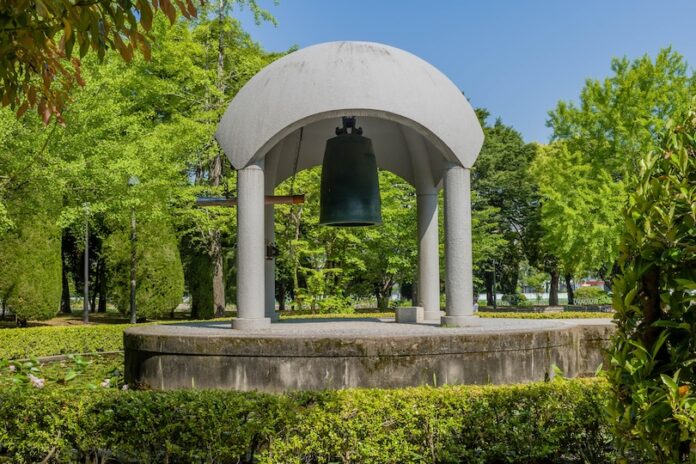I am back again in Japan with Japanese peace institutes, marking this most solemn of events in the global peace calendar. On 6 August 1945 Hiroshima endured a traumatic human loss of statistically seismic proportion – followed on 9 August by equally devastating mass casualties in Nagasaki. The human and environmental impact of these bombs as a sole exemplar of tactically deployed nuclear weaponization, had equally catastrophic implications for the narrative of international relations. As I spoke briefly to Hiroshima’s Mayor, Kazumi Matsui, he told me “even as almost all of the hibakusha (A-bomb victims and survivors) had now perished, their pained souls linger to remind the international community never again to repeat that evil day”.
For Japan, national humiliation and the diminutive status of a hitherto divine Hirohito dynasty, conjured visions that eternal spirits had abandoned them. The atomic bomb accelerated a nuclear arms race between competing superpowers, and (subsequently) among regional adversaries, and transformed international relations. I also interviewed the Mayors for Peace, an international body sponsored by the cities of Hiroshima and Nagasaki. Their spokeswoman said, “no one else should suffer as we have. Our Hiroshima-Nagasaki Courses convey this message to future generations by exploring the facts of the bombings and the experiences of the hibakusha. Currently, Hiroshima-Nagasaki Peace Study Courses run at 78 universities, a third of them outside Japan…”
In his speech expressing concerns about Russia’s prolonged war in Ukraine and Israel’s ongoing attack on the Gaza Strip, Mayor Matsui added, “I wonder if the state of the world is deepening doubt and suspicion among nations and the public’s belief that one must resort to force to resolve international problems”. His words reverberated across the massive Hiroshima Peace Memorial Park, as victims of the atomic bombing were remembered. The physical and psychological impact, and the torturous post-WW2 legacy of the atomic bomb, was felt way beyond the territorial borders of Japan. Yet a review of academic IR scholarship suggests alarming neglect of Hiroshima and Nagasaki Days and a memorialisation shrouded in political sensitivity.
These actions remain the only use of nuclear weapons in armed conflict. Scholars still debate the ethical and legal justification for the bombings. The significance of Hiroshima is perhaps most felt in this international legacy – in fashioning a culture of peace memorialisation that along with Vietnam, and most likely now Ukraine- serve as rallying points. Hiroshima/Nagasaki Days, while now enjoying greater diplomatic prominence, remain symbolic of the erstwhile neglect of peace memorialisation in the terrain of international relations. More frequently, peace ceremonies are indistinct from war remembrance so that their salience for improving international relations is largely lost.
It is also a matter of regret that while municipal authorities across the world have historically commemorated past battles, they have invariably allocated only meagre funds in memorialising peace. Opening a “Peace Museum” in Chicago in 1981, its founding director, Marianne Philbin regretted that war memorials were ubiquitous while her country possessed “no proper museum dedicated to building peace”. Symbolically, this museum faced financial struggles with federal government. It has taken much independent initiative to progress the goal of peace memorialisation and to exhibit those (often intangible) fragments of cultural heritage that might constitute “a lexicon of peace”. Such an object is meritorious in any part of the world but the challenge is all the more compelling in countries possessing a history as tragic as Japan’s. The psychological nightmare which haunted post-WW2 Japan, and which cast a shadow over its reconstruction, is poignantly documented in Robert Jungk’s, Children of the Ashes.




